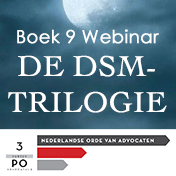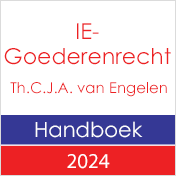European Copyright Society General opinion on the EU Copyright reform package
24-01-2017 Print this page
Uit de Opinion: “We generally support the policy objectives of the reform package, as announced in the preamble to the proposed DSM Directive: 1) ensuring wider access to content, 2) adapting exceptions to a digital and cross-border environment, and 3) achieving a well-functioning marketplace for copyright. We therefore endorse the proposed mandatory exceptions on distance education, text and data mining and preservation of cultural heritage – subject to our reservations set out below. We also generally support the proposed rules enabling cross-border portability of online content services (as per the proposed Portability Regulation), the rules on the import of VIP-accessible copies (as per the proposed VIP Regulation) and proposed rules on ancillary online services of broadcasters (as per the proposed Regulation on online transmission of broadcasting). […]
Lack of ambition
Despite its ambitious overarching goal and key objectives, as stated (inter alia) in the preamble of the proposed DSM Directive, the Commission’s reform package does not seem to reflect an overall vision of the future of EU copyright law, and fails to deliver on its promise of wholesale copyright reform. The copyright package proposes only piecemeal solutions, leaving the existing – already fragmented and partly outdated – copyright acquis intact. […]
Private ordening
Two of the three newly proposed mandatory exceptions are subject to private ordering. The proposed text and data mining exception (art. 3(1)) applies only where a research organization has "lawful access" to the database. Thus, the exception can effectively be denied to certain users by a right holder who refuses to grant “lawful access” to works or who grants such access on a conditional basis only. Moreover, this deference to private ordering allows publishers to price TDM into their subscription fees. However, many research organisations will not be able to acquire licences for all databases that are relevant for a TDM research project. Even more problematic is art. 4(2), according to which the availability of "adequate licences" alone may trump the exception for teaching activities, be it directly (denial of licence) or indirectly (by establishing excessive and unfair licensing terms that cannot be met by the teaching institution). […]
Fragmented approach
The current copyright acquis already comprises no fewer than ten directives. These directives paint a fragmented picture of copyright law in the EU, with different and sometimes contradictory provisions. Instead of a revision of the existing framework that could have taken the form of a comprehensive revision or codification of the existing legislation, the Commission has chosen to propose two additional directives and two new regulations. This will inevitably lead to further fragmentation and inconsistency. For example, the new mandatory exceptions to be added by the proposed DSM Directive are intended to apply in parallel with the existing, partly overlapping exceptions of article 5 of the Information Society Directive. […]
The sharing economy
Notwithstanding the mandatory exceptions considered above, the proposed DSM Directive appears to be largely predicated on the idea that the dissemination of copyright protected content over the Internet is to be based on licensing agreements, subject to the right holder’s complete control. This rather traditionalist perspective overlooks the sharing economy/culture that drives much of the content production and dissemination on the Internet today. In our opinion, any forward-looking copyright policy at EU level should reflect not only the economic needs and interests of traditional right holders, but should also be designed in light of a broader and more inclusive ambition to foster cultural production, access to culture and knowledge and technological progress (see e.g. art. 3(3) of the TFEU). In this context, we also deplore the fact that the Commission has shied away from proposing a flexible exception as suggested in our response to the 2014 public consultation – a much-needed open norm in times of rapid social and technological change. […]”
Lees hier meer.



























































